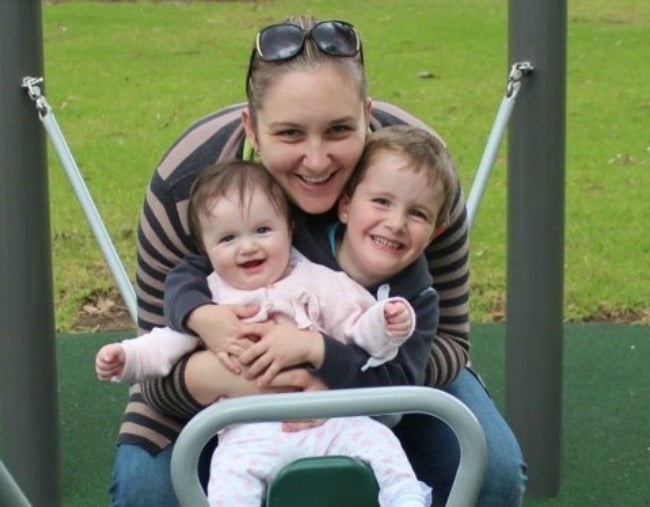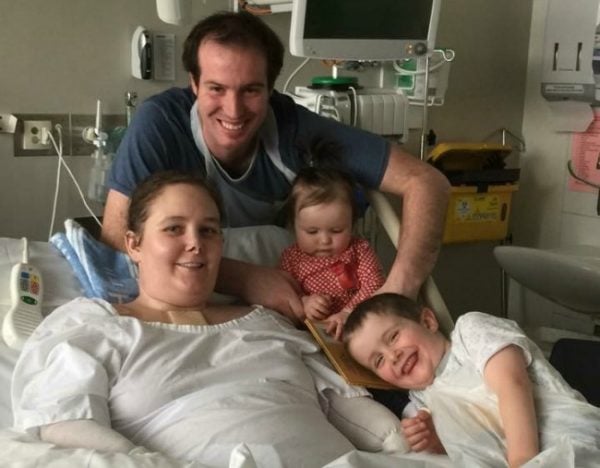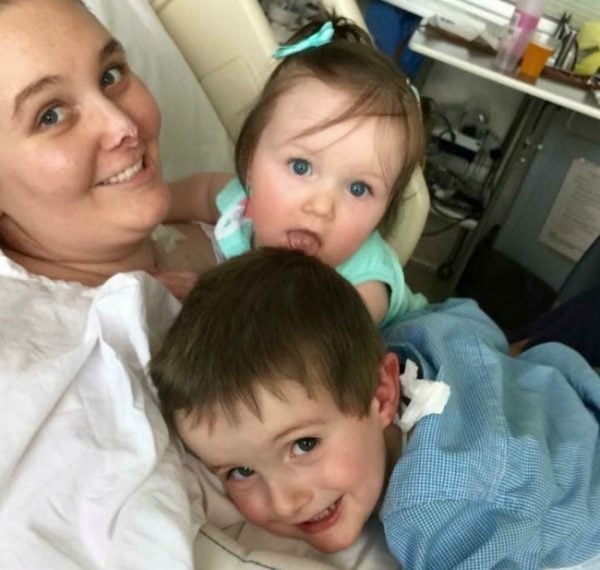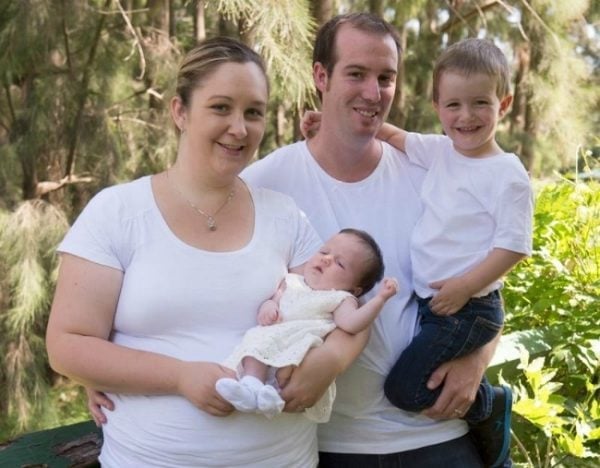
On a Tuesday morning in 2015, mother-of-two Korina Valentine went to her local GP after having fallen unwell a day earlier. She was vomiting, and struggling to walk, but the doctor sent her home with suspected gastro to rest up.
Overnight, her condition drastically deteriorated, and in the morning her husband Daniel, 31, rushed her straight to the emergency room. Little did they know that she wouldn’t leave hospital for another 10 months.
Korina, now aged 30, had contracted sepsis, a deadly infection – commonly referred to as blood poisoning – which occurs when the body’s response to infection injures tissues and organs.
By Thursday, she was in a coma. Four months later, she woke up to discover both of her arms and legs had been amputated.
“I was healthy and enjoying life as a mum,” Korina said. “I had no idea what sepsis was until it nearly killed me.”
That year, the Southern Highlands, NSW, mum became one of the 18,000 Australians who are diagnosed with sepsis annually. It’s a disease that kills about 5000 people each year – more than the national road toll, which was 1225 in 2017. And of those that survive sepsis, half are left with a disability or a lifelong impairment.




Top Comments
Early treatment of possible sepsis is the flip-side of antibiotic resistence. The vast majority of cases that start like this DO turn out to be viral. While GPs are mindful of antibiotic overuse, nobody wants to 'miss' a potentially serious case, and patients may prefer taking antibiotics to a more rational 'wait and see' approach.
Diagnosis of the early stages of infective illness is not simple.
It is essential that the community is vaccinated against meningococcal and pneumococcal disease to minimise the circulation of these organisms.
Best wishes to this family.
To clarify, you don’t contract sepsis, you develop it and it’s not a disease, it’s an illness. In the three major Queensland hospitals I’ve worked in, sepsis has always been on the radar. Action plans for sepsis management were readily available (in the staff room, the medication room, hallways and patient rooms) and used for patients who likely were developing sepsis. My current hospital has educational posters up for patients and does patient awareness campaigns multiple times a year.